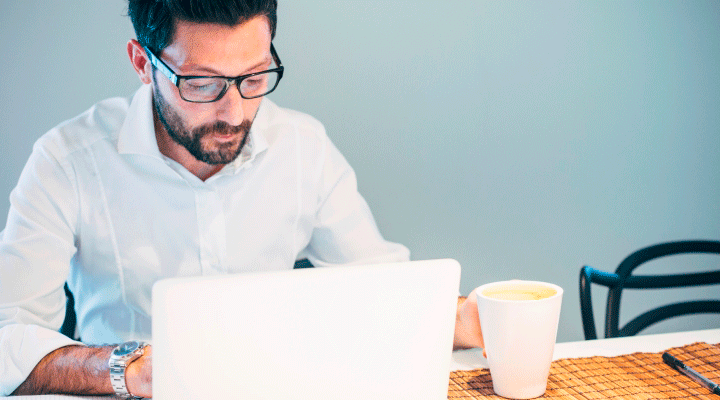If you can’t resist the siren call of work emails, you’re not alone: A recent survey shows many people—namely, millennials—check work emails constantly. More than half—61%—of people say they check work emails in bed, while people are most likely to update their inboxes while in the bathroom. Some can’t even unwind when they’re engaged in pleasure activities: 36% of people surveyed say they will check work emails while they watch TV or a movie.
“There are a number of reasons why people can be so plugged into work email, including the expectation that they will be responsive 24/7, struggling with anxiety about work and feeling like ‘knowing what’s happening’ will relieve their anxiety, and simply, habit,” says Elizabeth Grace Saunders, time management coach and author of The 3 Secrets to Effective Time Investment.
But people—maybe even you—want to find balance. The same survey by Adobe shows people spend more than three hours each day checking their work emails, but they want to cut back.
And there’s good reason to take a time out: Too much time spent on email can have negative effects on your whole life. A study published in Computers in Human Behavior shows people who check their emails throughout the day are more likely to be stressed than those who simply check in three times a day. As Saunders explains, “Checking e-mail constantly deprives you of the ability to truly rest and recharge. This can create burnout and lack of overall productivity.”
If you’d like to reduce the amount of time you spend on emails, you can—with these five tips.
1. Create a system for viewing emails.
Most email programs offer features that let you differentiate and prioritized your inbox—folders, tabs, stars, flags, and more. Karen Southall Watts, B.A., M.S., author of The Solo Workday, says using these tools are key to creating a system for when and how to view your emails. “Prioritize what gets read right away, what gets marked for later, and what might be deleted immediately,” she says. Your inbox will quickly become less overwhelming—and require less of your time.
2. Create an email plan with your colleagues.
Rahaf Harfoush, executive director of the Red Thread Institute of Digital Culture and author of Hustle and Float: Reclaim Your Creativity and Thrive in a World Obsessed with Work, suggests speaking with your team to set clear expectations on email etiquette—for example, he says you should agree on what types of messages should be given priority, how long it should take to respond to emails, and after what time emails can be ignored until the next day. “Expectations mean people understand when an answer will be given and can prioritize resting,” Harfoush says.
3. Check your emails three times a day.
Restricting yourself to checking work emails just three times a day can free up a lot of your time, especially while you’re at work, says Harfoush. He recommends checking emails just once in the morning, once in the afternoon, and once before you clock out for the day. “Set aside an amount of time—like an hour—to answer all the emails at once,” he says. “This batching technique will ensure that you don’t get interrupted from more important tasks later. It will also mean that you answer emails promptly, but without letting your inbox hijack your day and take all your focus.”
4. Set up email-free zones where you do not check email.
Checking work emails while in the bathroom isn’t healthy—in a plethora of ways. So, Saunders suggests setting email-free zones—either blocks of time, during certain activities, or in specific rooms—where you don’t allow yourself to check work emails. “For example, some of my clients take a one-day tech sabbath each week while others have a no-email-after-7-p.m. rule,” she says.
5. Or set an email cut-off time.
Not only do people admit to checking work emails everywhere, they also cop to checking it all the time. That’s why Jayson DeMers, founder and CEO of EmailAnalytics, recommends setting an email cut-off time—a time each day after which you will not check your email. “Maybe it’s when you leave the office, or when normal business hours end,” he says. But whenever it is, you must “be disciplined about not checking your email after that time” to have an effect, he says.




